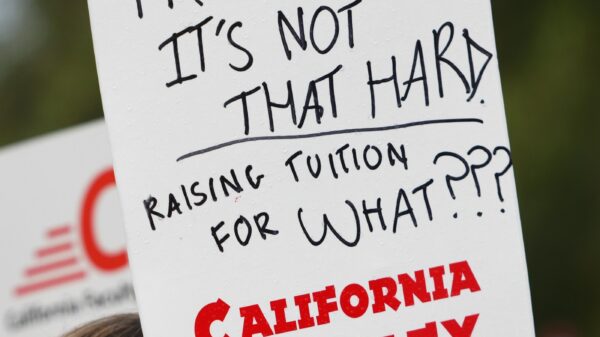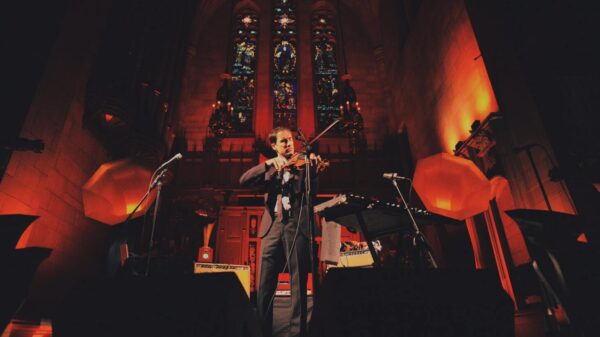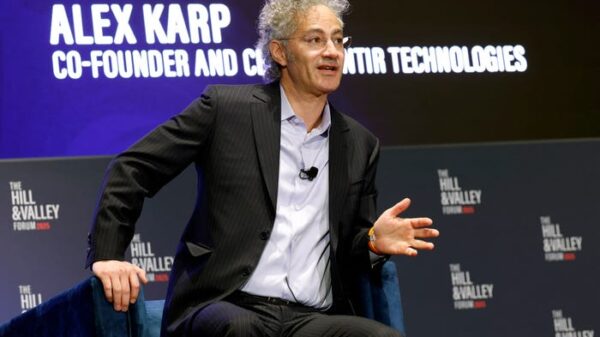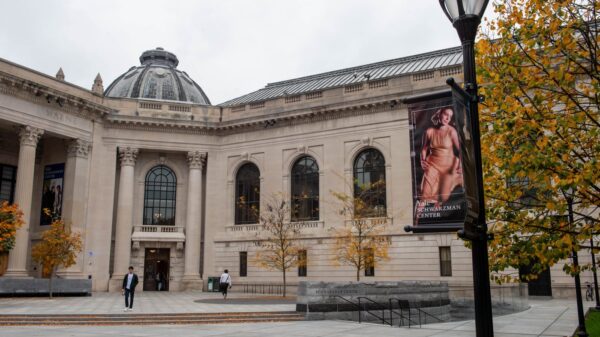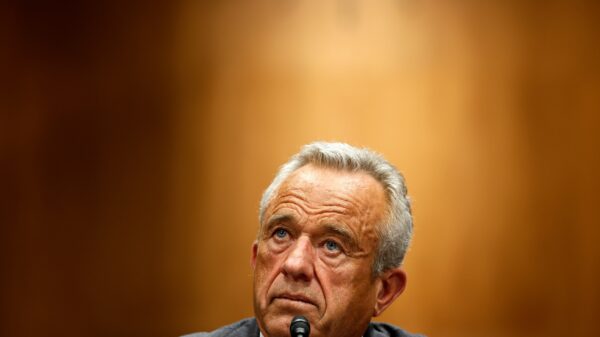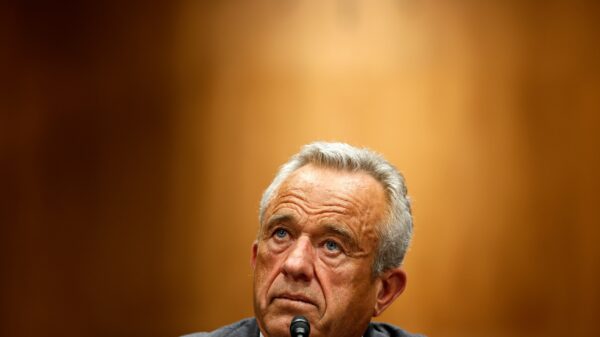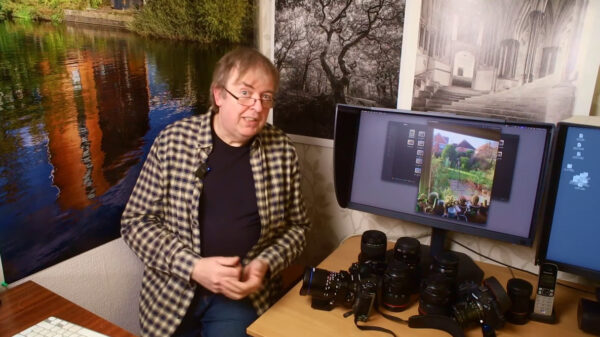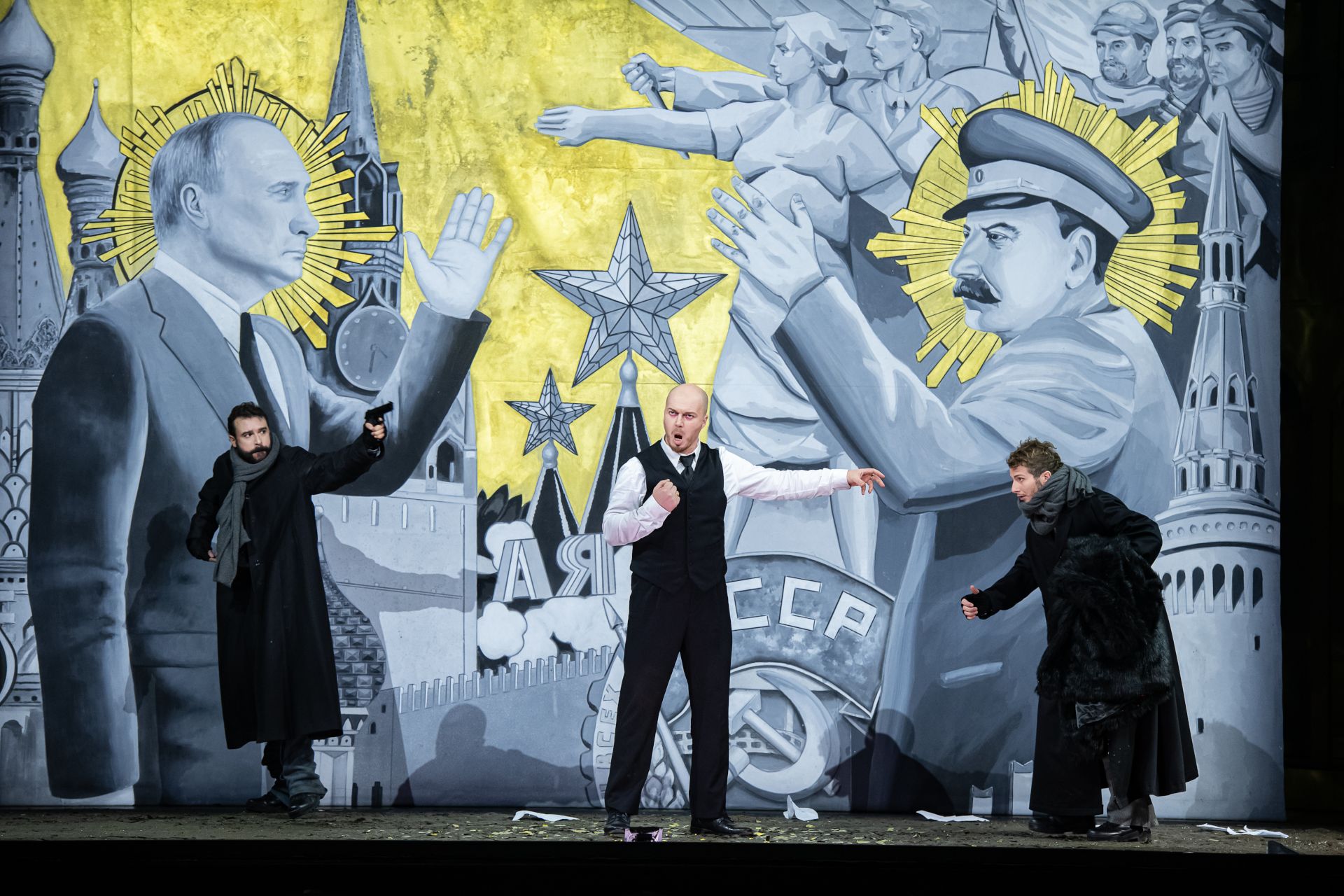In a striking production at the Amsterdam Opera House earlier this year, director Kirill Serebrennikov reimagined the classic Russian opera “Boris Godunov,” presenting it as a pointed commentary on contemporary politics, particularly reflecting the regime of President Vladimir Putin. The opera, composed by Modest Mussorgsky in the 19th century, tells the tragic story of Tsar Boris Godunov, whose reign was marred by turmoil, guilt, and invasion.
Serebrennikov’s adaptation draws direct parallels between Godunov’s rise to power and the ascension of Putin, set against a backdrop of modern Russian society. The production opens with Godunov, dressed in a dark suit and red tie, mirroring the moment Putin was declared president on New Year’s Eve, 1999. The scene presents a stark contrast: while Godunov sings a triumphant aria, oblivious Russians celebrate in a Soviet-style apartment, creating a chilling juxtaposition of festivity and impending doom.
The character traditionally known as the Holy Fool, who serves as the opera’s moral compass, was transformed into a liberal protester reciting speeches from Russian political prisoners. The production further critiques the Kremlin’s narrative by depicting a fabricated coup supported by Polish forces and staging funerals for soldiers killed in Ukraine. Tomasz Konieczny, who portrayed Godunov, noted the opera’s relevance, emphasizing its exploration of power dynamics and the human condition in dire circumstances.
Enduring Popularity Amidst War
Despite the ongoing conflict in Ukraine, “Boris Godunov” remains a popular choice among opera houses in both Europe and Russia. Since the full-scale invasion, there have been at least 13 new productions across Europe, including upcoming performances in Lyon, France, and Frankfurt, Germany. Meanwhile, Moscow’s Bolshoi Opera continues to feature a traditional version of the opera, underscoring its significance in Russian cultural life.
In contrast, the Polish National Opera canceled a planned production in 2022 as a response to the war’s impact, highlighting the sensitivity surrounding artistic expression in relation to geopolitical events. The cancellation reflects Poland’s historical memory of war and its solidarity with Ukraine.
The opera’s adaptability allows for diverse interpretations, making it a canvas for artistic and political expression. This flexibility is partly due to multiple versions of the work, which can be tailored to reflect various themes, from regicide to the complexities of political power. Simon Morrison, a Russian music expert at Princeton University, emphasized that the opera’s structure lends itself to reinterpretation, whether in support of or against the current regime.
Contrasting Interpretations
Different directorial approaches to “Boris Godunov” reveal the opera’s multifaceted nature. Recent productions have ranged from overtly pro-Kremlin interpretations to those, like Serebrennikov’s, that critically engage with contemporary issues. In a recent staging in Toulouse, French director Olivier Py included soldiers with AK-47s and the “Z” symbol, representing Russian forces in Ukraine. Such interpretations are impossible in modern Russia, where dissent against the regime is often met with severe consequences.
The question of which character serves as the opera’s focal point also sparks debate among directors. Some productions emphasize the chorus, representing the collective suffering of the people, while others, like the recent Buryat National Opera rendition, center on Godunov himself. Director Vladimir Rylov argued that Godunov embodies the tragic consequences of leadership failure, ultimately presenting a sympathetic portrait of the tsar.
Conversely, Serebrennikov’s version diminishes the audience’s empathy for Godunov by reducing the presence of his children, a choice that shifts focus to the broader societal suffering. Haunting images of marginalized individuals, captured by late photographer Dmitry Markov, serve as a poignant reminder of the ongoing human cost of political decisions.
The recent interpretation in Krasnoyarsk, although traditional in presentation, also sought to engage with the political themes inherent in the opera. By focusing on Godunov’s original sin—the murder of his rival—this version subtly critiques the current regime’s actions and their moral implications.
As discussions surrounding the role of Russian art continue, “Boris Godunov” serves as a potent symbol of the ideological battles at play. Recent controversies in the West have raised questions about how to engage with Russian culture amid the ongoing war. Demonstrations outside major opera houses highlight the complexities of presenting Russian works, especially when artists are perceived to have ties to the Kremlin.
Despite these controversies, some Russian artists have maintained their presence in both domestic and international stages. Dmitry Ulyanov, who has performed the role of Godunov in both Krasnoyarsk and Lyon, has not publicly condemned the war, raising further questions about the responsibilities of artists in times of conflict.
While the war in Ukraine casts a long shadow over artistic expression, some directors, like Keith Warner, aim to extract broader themes from “Boris Godunov.” Warner intends to explore the pressures of leadership and the quest for truth, framing the opera within a wider context of political upheaval in various regions.
The opera’s conclusion remains haunting and relevant, as the character of the Holy Fool delivers the final lines, warning of the darkness that follows the fall of tyrants. The enduring nature of “Boris Godunov” ensures that it will continue to resonate with audiences, serving as both a reflection of its historical context and a vehicle for contemporary protest.



